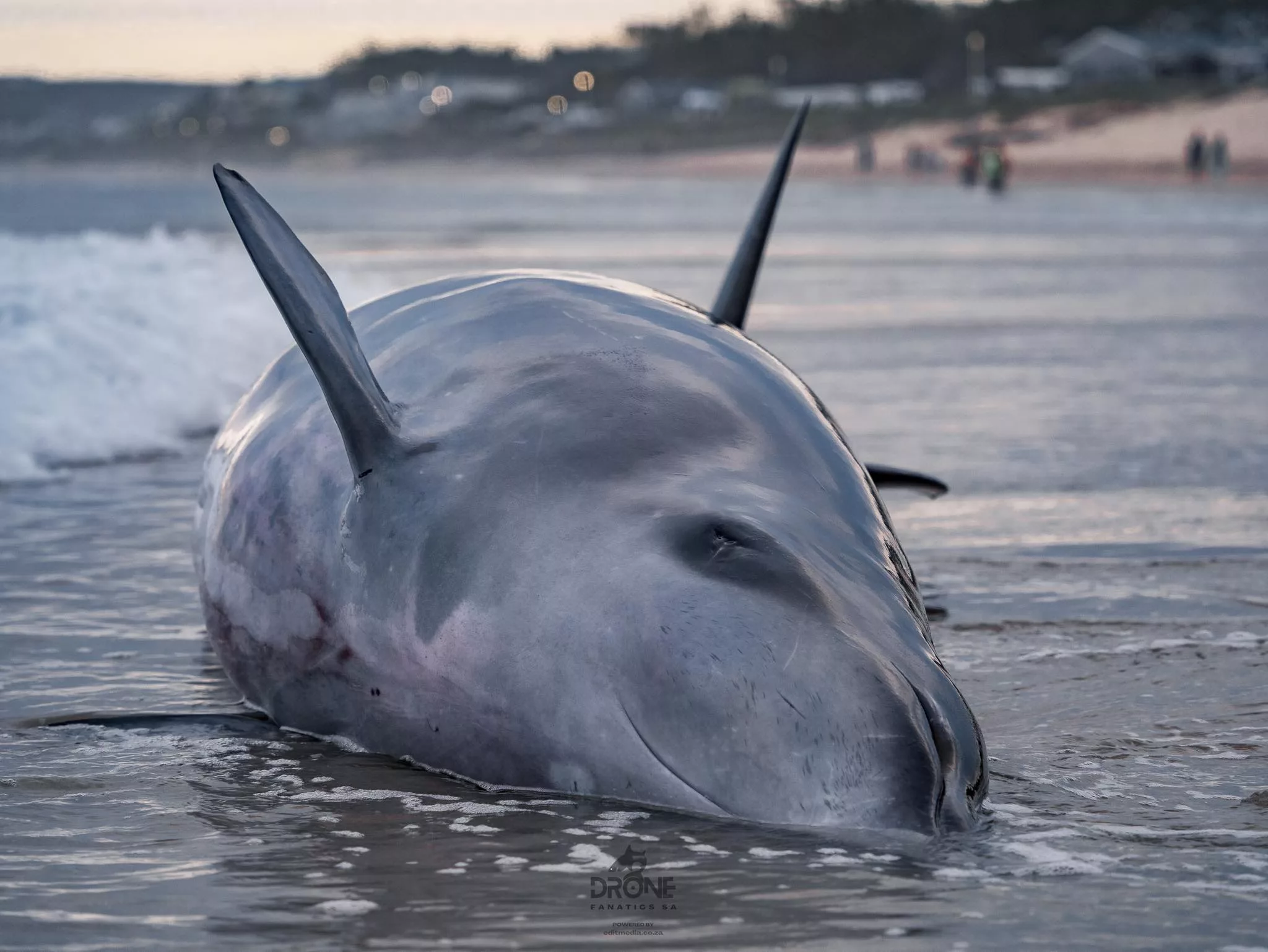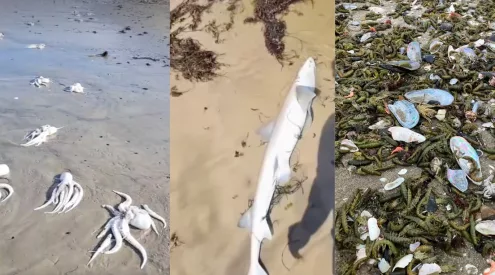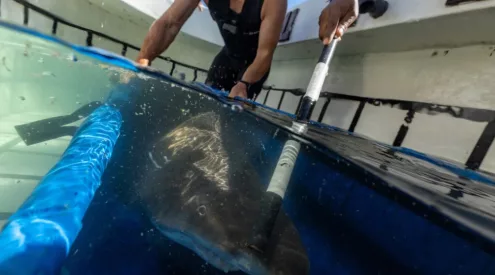
Image: Facebook / DRONE FANATICS SA
A heartbreaking incident unfolded at Hartenbos Beach in Mossel Bay, where a beaked whale was found stranded on the shore, sparking immediate rescue efforts from concerned bystanders and marine enthusiasts.
Despite attempts to guide the animal back into the ocean, the whale repeatedly returned to the beach, leading to the difficult decision to euthanise it.
The stranded whale was identified as a member of the elusive beaked whale family, known for their deep-diving habits and preference for remote ocean waters.
These marine mammals are notoriously difficult to study due to their rare surfacing behaviour and deep-sea foraging techniques.
Beaked whales typically feed on squid and deep-water fish, using echolocation to navigate the dark, deep depths of the ocean.
Members of Stranded Marine Animal Rescue Team (S.M.A.R.T) initially attempted to refloat the whale, with help later from volunteers.
However, their efforts were unsuccessful as the whale kept coming back to shore.
The presence of the whale on the beach repeatedly was a strong indication that something was amiss.
Sadly, the beaked whale was euthanised, with rescue operations not successful in easing the animal’s distress.

Beaked whales, such as the Cuvier’s beaked whale, are known for their impressive diving capabilities, with the species holding the record for the longest dive by any mammal – over 3.5 hours.
While their secretive nature and preference for deep waters make them hard to study, it is clear that beaked whales play an important role in marine ecosystems.
Unfortunately, the cause of the whale’s beaching remains a mystery, and the incident has sparked a greater discussion about the need for more research on these elusive creatures.
Article written by Aiden Daries for Cape Town ETC.


















